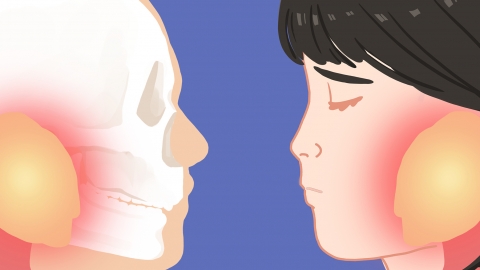What are the early symptoms of salivary duct carcinoma?
Early symptoms of salivary duct carcinoma may include a painless mass in the parotid region, mild distension or discomfort in the parotid area, abnormal saliva secretion, facial numbness or mild facial paralysis, and abnormalities at the duct opening inside the mouth. These early signs are often subtle and easily overlooked. Any unusual changes should be evaluated promptly. If a persistent mass, pain, or facial abnormalities occur in the parotid region, immediate medical consultation is necessary.

1. Painless mass in the parotid region: This is the most common early symptom, usually located below or in front of the earlobe. The mass is typically firm with unclear borders and grows slowly. It is initially painless and often mistaken for a benign salivary nodule.
2. Mild distension or discomfort in the parotid region: Some patients experience intermittent mild swelling or pain in the parotid area during the early stage, which may worsen during eating. The pain is usually mild and not persistent, often ignored or mistakenly attributed to inflammation.
3. Abnormal saliva secretion: Patients may experience decreased or increased saliva production. Some individuals may have dry mouth, leading to difficulty chewing or swallowing during meals due to insufficient saliva. In rare cases, saliva may contain small amounts of blood.
4. Facial numbness or mild facial paralysis: If the tumor compresses nearby nerves, patients may experience localized facial numbness or mild facial paralysis in the early stages. These symptoms are typically mild and progress slowly.
5. Abnormalities at the duct opening inside the mouth: The parotid duct opens on the buccal mucosa inside the mouth. Early signs may include redness and slight swelling of the duct opening, mild pain, or discharge of small amounts of sticky secretions, which may be noticed during oral hygiene practices.
For daily care, it is important to monitor the parotid region for any unusual changes, avoid frequent touching or pressing of suspicious masses, maintain good oral hygiene to reduce the risk of infection, and avoid smoking, alcohol consumption, and spicy or irritating foods. Prompt medical evaluation is essential upon symptom onset—do not delay seeking medical attention.




